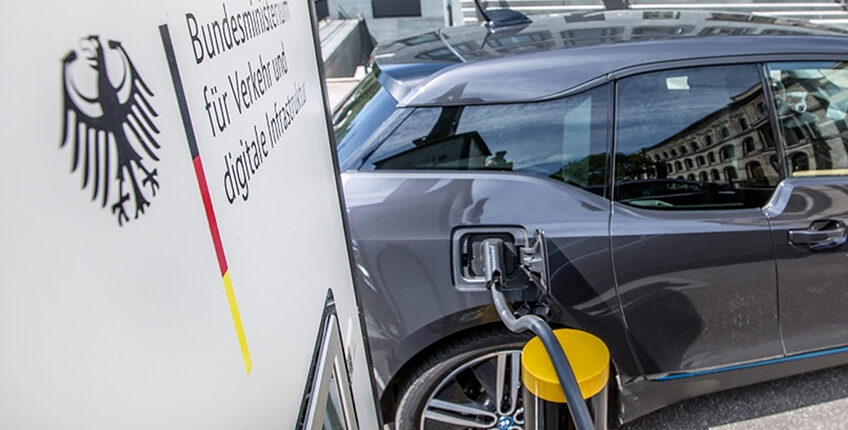On Wednesday, 10 February 2021, the German federal cabinet passed the bill submitted by Federal Minister Andreas Scheuer for the provision of a nationwide fast-charging infrastructure for pure battery electric vehicles - the Fast-Charging Law (Schnellladegesetz). By doing so, the BMVI is creating the legal basis for the proposed tender to establish a public fast-charging network with 1,000 locations.
Federal Minister Andreas Scheuer: “The nearest fast-charging station must be readily accessible within just a few minutes. To come closer to this goal, we intend to establish 1,000 fast-charging hubs nationwide by 2023. The Fast-Charging Law is a crucial prerequisite for launching the Europe-wide call for tenders and thus the development of the new locations. Only with a nationwide and user-friendly charging infrastructure can we succeed in persuading more people to switch to climate-friendly electric vehicles and charge them with energy from renewable sources. With a charging capacity of more than 150 kilowatts, fast charging is particularly crucial for ensuring the suitability of electric cars for long journeys. We are striving to enable mobility with better air quality, less noise and, most importantly, lower CO2 emissions.”
Background:
- The funding programmes for the development of a charging infrastructure for e-vehicles, which have now been in place for several years, are not sufficient on their own to ensure that the infrastructure is developed quickly, reliably, in line with demand, across the board and in a consumer-friendly manner – especially with regard to locations that are rarely or only temporarily frequented (e.g. during holiday periods).
- They offer no guarantee for the rapid installation and permanent operation of charging infrastructure, because despite the granting of funding, the recipient of the grant is not obliged to actually install it.
- In addition, charging at most charging points has so far only been possible with a normal charging capacity (of 22 kW at most), because fast charging (with over 100 kW) has not yet been specifically pushed nationwide.
- In contrast, there are far too few fast-charging points with high power (in view of the vehicles that will be available in the future and the intended use over medium/long distances). Currently, less than 2% of all charging points have a charging capacity of at least 100 kW. For the successful market ramp-up of e-vehicles, however, a needs-based, nationwide and user-friendly charging point infrastructure is essential.
- For this reason, the federal government is supplementing its funding policy.
- First step: The construction and operation of a nationwide fast-charging network at 1,000 locations will be commissioned in a Europe-wide tender. This entails that the fast-charging network should cover the demand for medium and long-distance mobility on trunk roads as well as important locations in urban areas. The locations must always be public and accessible around the clock and can be located on public or private land.
- With the charging infrastructure, an efficient and non-discriminatory accessible backbone of electric mobility is being established with uniform specifications to ensure user-friendliness.
- With a view to the 2030 target, these locations only make up a small proportion of the necessary overall network. However, they are already necessary for a forward-looking infrastructure expansion in order to increase the acceptance and attractiveness of battery-electric mobility.
Key points of the tender:
- The federal government is not to become an operator of charging facilities itself. Rather, the infrastructure development for the market ramp-up of electric vehicles is to be warranted through long-term contracts with operators. The tender will be for HPC (High-Power Charging) charging infrastructure with a capacity per charging point of at least 150 kW, which ensures fast charging for medium and long-range mobility.
- The tender is expected to be divided into 10 to 15 lots. Bidding consortia may also be formed, so that small and medium-sized enterprises also have the opportunity to participate in the process.
- Since this is a Europe-wide tender, European companies can also apply for the tender. An appropriate cut of the lots will ensure competition in the tender.
- The federal government will select several operators who will then establish and operate the charging stations on its behalf. The operators are legally obliged to install the charging points in precisely defined regions, within a certain time frame and with corresponding standards.
- The operator who submits the best offer, taking into account economic aspects, wins the contract.
- The existing charging infrastructure will be included in the needs assessment, which will be conducted by the National Centre for Charging Infrastructure. With the so-called “StandortTOOL” digital location tool, the National Centre for Charging Infrastructure has a tool at its disposal that takes the location and performance of existing charging points into account when planning for future demand. In this way, it is possible to exclude the possibility that charging points of the planned fast charging network are unnecessarily planned to be installed near already existing charging points. This will also avoid the development of unnecessary competitive conflicts.
- A funding volume of some 2 billion euros has been earmarked for the development of the fast-charging infrastructure. The federal government will participate proportionately to the extent that this is necessary in accordance with the results of the tender.
The draft law, which was agreed upon by the ministries, was passed by the cabinet today. The Fast-Charging Law (Schnellladegesetz) is to be passed by the Bundestag and the Bundesrat this spring. The invitation to tender for 1,000 sites is to commence in the summer of 2021.
Further information (in German):


